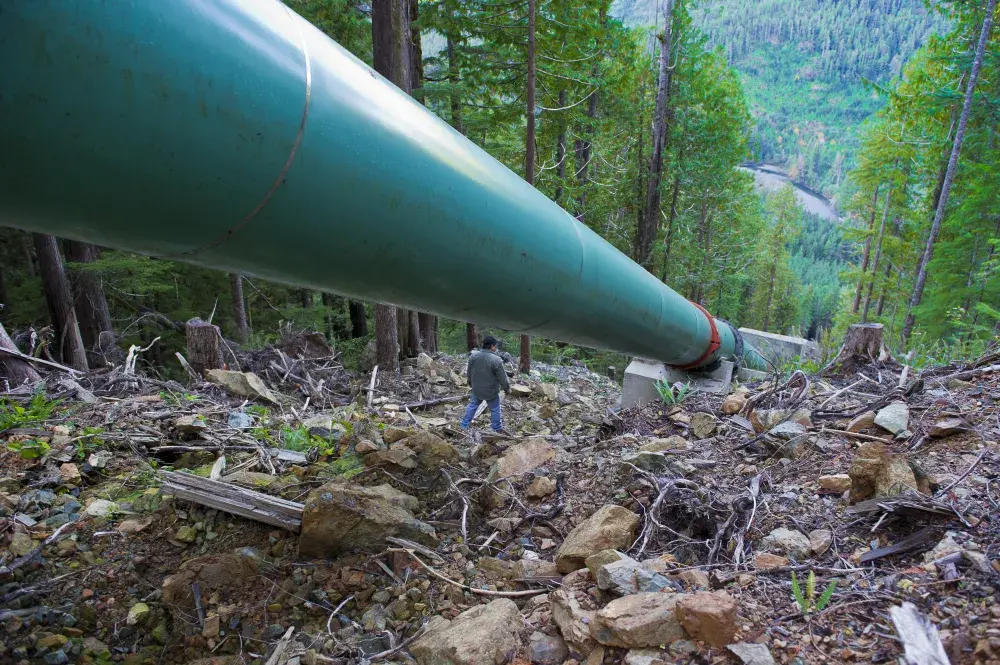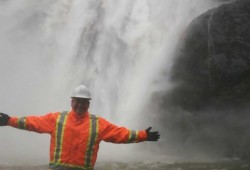The Province of British Columbia and BC Hydro are are working with First Nations and clean-energy companies to advance a call for power next spring.
In June 2023, the province announced that BC Hydro is moving ahead with a call for resources to meet the growing demand for electricity in B.C.
Objectives of the call are to acquire energy from clean or renewable sources that are cost-effective for ratepayers - projects that can come online as early as fall 2028 and initiatives that can be meaningful partnerships with First Nations.
BC Hydro is currently in phase two of the engagement process, which takes place from September 2023 to January 2024.
"B.C. is a clean-energy superpower, but we know that we are going to need more renewable electricity in the years ahead. BC Hydro's upcoming call for power will only be the beginning as we accelerate our efforts to electrify B.C.'s growing economy and create jobs for people," said Josie Osborne, minister of Energy, Mines and Low Carbon Innovation, in a press release. "Early engagement on the call for power with First Nations and stakeholders has been very encouraging, and we look forward to building on that over the weeks ahead as we work together on developing First Nations partnership models aimed at advancing reconciliation."
Over the past several months, BC Hydro has engaged with First Nation partners and industry stakeholders on the key elements of the call for power. This includes 30 individual meetings with 24 First Nations and workshops in four regions of the province.
Judith Sayers, Nuu-chah-nulth Tribal Council president, has attended several of the engagement sessions with BC Hydro.
“This call is designed really for large projects—30 to 50 megawatts—which are really large. So they’re really looking at the North and wind projects,” Sayers said. “We really want to work with [BC Hydro] on the next call so that we can allow a lot more First Nations projects that are a lot more smaller in size - whether it’s solar, run of the river, geothermal, whatever they have in their territory.”
Sayers said she isn’t aware of any large-scale power projects in Nuu-chah-nulth territories, but there are smaller projects in operation or in progress.
The Hesquiaht First Nation has made a successful transition from a diesel-driven generator to sustainable clean energy that relies upon renewable hydroelectric power at Hot Springs Cove. With a 350-killowatt capacity, the Ah’ta’apq Creek plant harnesses energy from the local rushing waters of the creek and provides electricity needed in the village.
The Sarita River hydro project in Huu-ay-aht territory, which is expected to be complete in 2025, will harness a water flow capable of generating more power than would be needed by the nearby villages of Anacla and Bamfield combined. It will have a 5.2-megawatt capacity.
The Tla-o-qui-aht First Nation is operating two run-of-the river projects on Canoe and Haa-ak-suuk creeks. With a generating capacity of six megawatts each, the micro-hydro plants began operating in 2010 and 2014 respectively, with 40-year agreements to sell the power to BC Hydro.
A run-of-the-river project at China Creek, in Hupacasath territory, has a generating capacity of 6.5 megawatts at peak streamflow. During heavy rainfall in the winter, China Creek can produce enough electricity for 6,000 homes, comparable to the total number residences within the City of Port Alberni.
For some First Nations communities, having their own clean energy projects is essential for “getting off the grid” said Sayers, but also the economic opportunity and a chance to bring money and power into a community.
“There’s great opportunity in our territories and we just have to do an inventory to see what’s there, what can we use,” Sayers said. “I’d like to see all Nuu-chah-nulth nations looking into that and preparing for future calls and possibly this call.”
Through the dozens of information sessions, focus groups, meetings and workshops between BC Hydro, First Nations and stakeholders, the items that have generated the most discussion include: First Nations partnership in projects and collaboration in designing the call, project development challenges, the call process, including minimum project size, opportunities and constraints related to transmission infrastructure and subsequent calls for power.
"As we prepare to launch our call for power next spring, we are listening carefully to what is important to First Nations and stakeholders," said Chris O'Riley, president and CEO of BC Hydro, in a press release. "We have approached developing this call openly and with flexibility in mind. Feedback is so important, and we will continue to refine the design of the call based on what we hear from British Columbians as we continue engagement over the next several months."
During late fall and early winter, BC Hydro will continue to seek input from First Nations partners and industry stakeholders about the call for power procurement process and parameters, including requirements for First Nations economic participation, and what the terms and conditions of electricity purchase agreements will look like between BC Hydro and the successful proponents.


